Mark Drakeford visits historic letter from Welsh prince in Paris
- Published
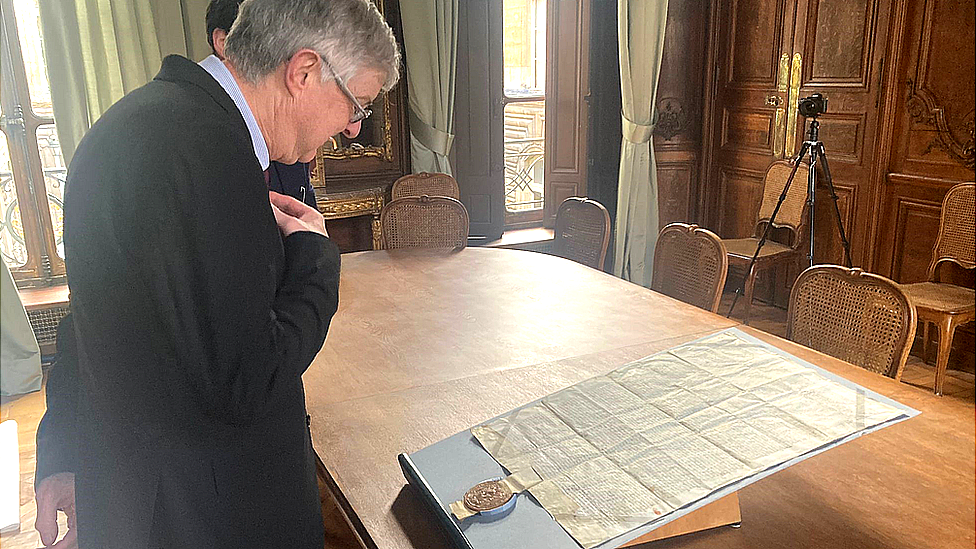
The first minister paid a visit to the French National Archive to see the historic letter ahead of Wales' Six Nation match in Paris on Saturday
Mark Drakeford has spoken of his emotion at visiting a 600-year-old letter from a Welsh prince described as the "most important" in Wales' history.
The letter from Owain Glyndŵr to King Charles VI of France was a request for help in his rebellion against English rule.
The Pennal Letter was on display at the French National Archive in Paris.
The first minister was visiting France ahead of Wales' Six Nations clash against the nation on Saturday.
The letter was composed at the synod of the Welsh Church at Pennal, Gwynedd, in 1406.
In it, self-proclaimed Prince of Wales Glyndŵr detailed his vision for a new autonomous Wales, free from English rule, which included establishing an independent church and two universities.
He also set out that in return for aid from the French king he would be willing to recognise Benedict XIII of Avignon as Pope.
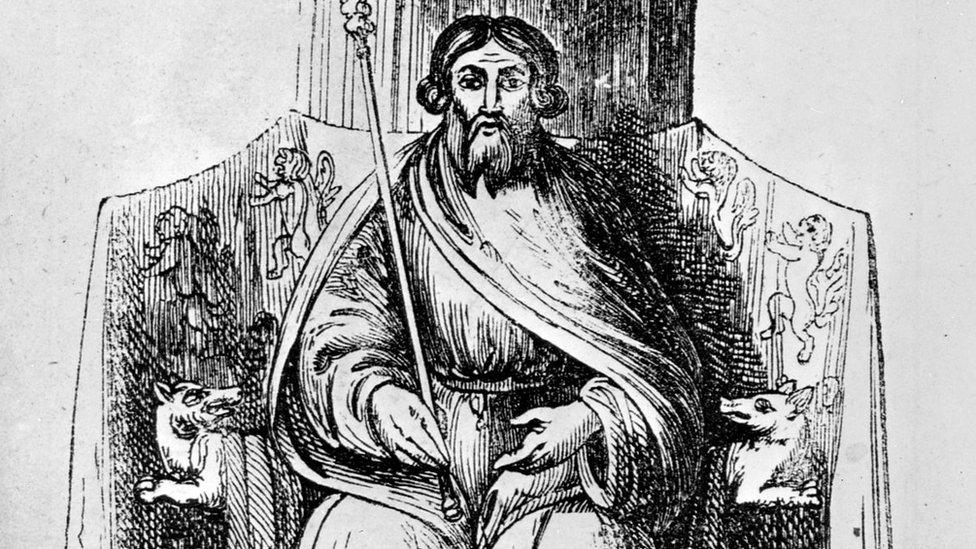
Owain Glyndŵr staged a rebellion against the rule of Henry IV in the early 1400s
After visiting the letter on Thursday, Mr Drakeford said it was "utterly remarkable" to see the document "as people would have seen it 600 and more years ago".
"And in a way that I hadn't expected, it was quite an emotional experience to think you are physically in the room with a document that was pivotal in Welsh history, and was part of what it is to be have been Welsh, and I was really grateful to the French authorities," he added.
"What it says to me in today's Wales is we were a European nation all the way back then, and those relationships remain absolutely important to us in the circumstances of contemporary Wales."
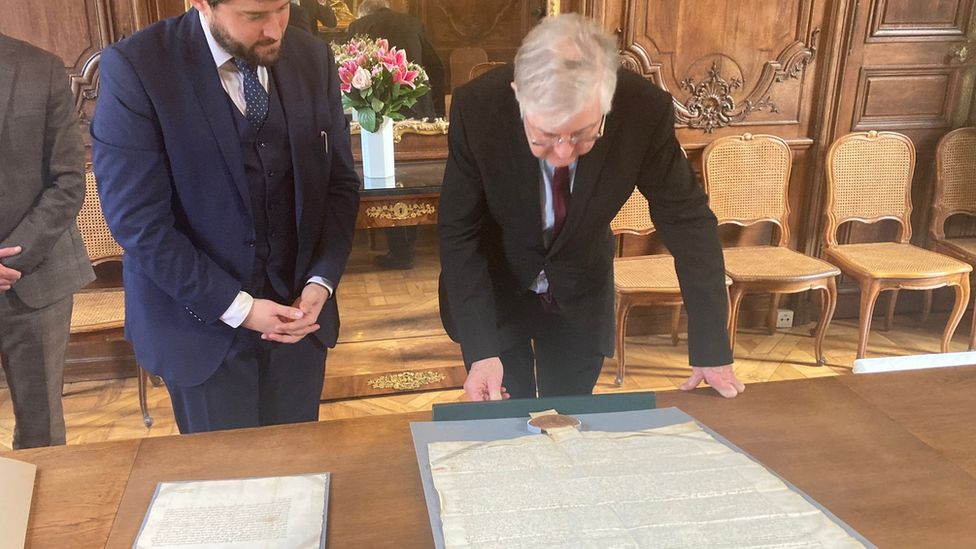
The first minister said it was "remarkable" to see the document in person
Glyndŵr's rebellion was the last major attempt to overthrow English rule in Wales.
He is said to have held a parliament at Machynlleth, Powys, and, backed by French military aid, took Carmarthen and Cardiff in 1403, followed by Harlech and Aberystwyth in 1404.
However, by 1408 - two years after the Pennal Letter was sent - the rebellion had reverted to a guerrilla war, with Glyndŵr on the run.
After a string of defeats, Glyndŵr went into hiding in the mountains and is thought to have died in about 1416 at his daughter's home on the Herefordshire border.
Related topics
- Published13 June 2017
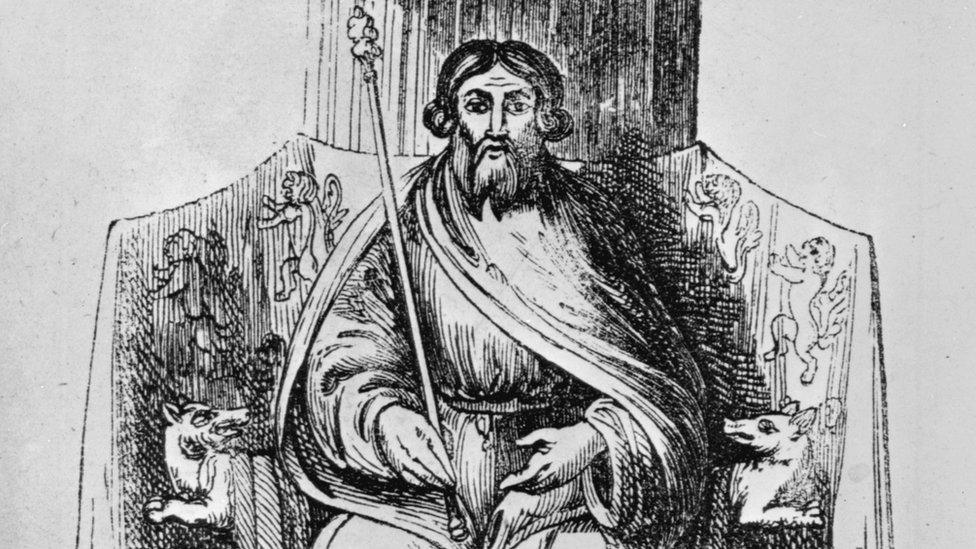
- Published12 September 2019
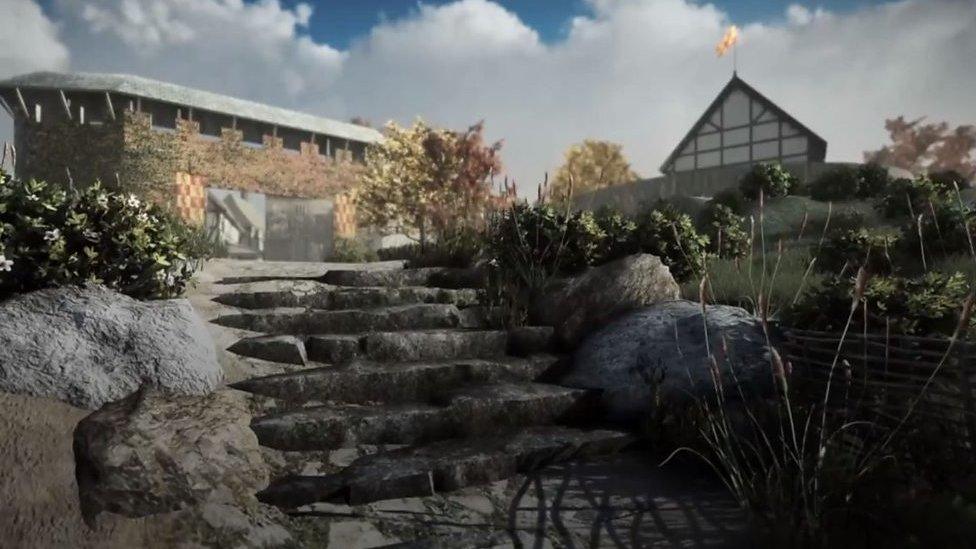
- Published21 January 2015